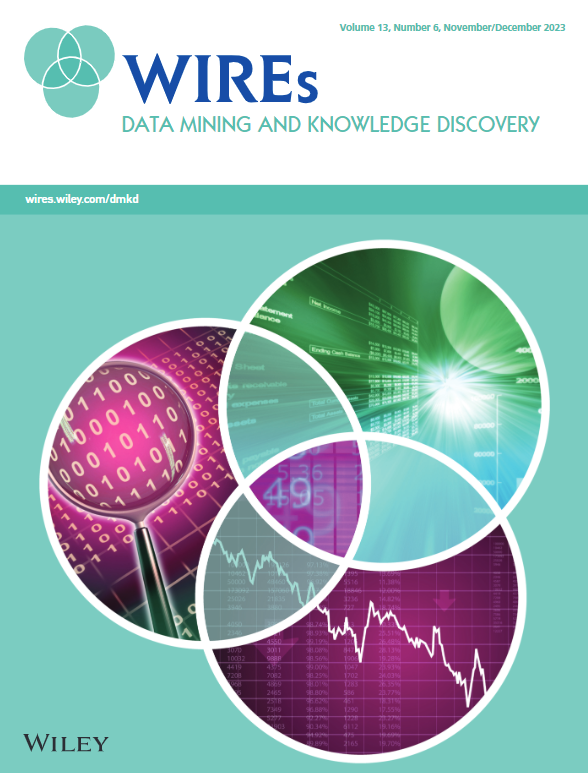教育数据挖掘的公开可用数据集综述
IF 11.7
2区 计算机科学
Q1 COMPUTER SCIENCE, ARTIFICIAL INTELLIGENCE
Wiley Interdisciplinary Reviews-Data Mining and Knowledge Discovery
Pub Date : 2021-01-01
DOI:10.1002/widm.1403
引用次数: 20
摘要
数据集的可用性是教育数据挖掘(EDM)管道的关键组成部分。一旦数据集在手,研究方法的下一步是适当的研究问题制定,数据分析管道的设计和实施,最后是验证结果的呈现。由于可用的工具和技术数量的增加,EDM研究领域不断发展,构成瓶颈的关键问题之一是对公开可用的数据集进行适当的文档审查。本文旨在对最常用的公开可用数据源及其相关的EDM任务、使用的算法、实验结果和主要发现进行简洁而翔实的描述。我们发现有三种类型的数据源:众所周知的数据源,EDM竞赛中使用的数据集和独立的EDM数据集。我们的结论是,未来EDM数据源的成功将依赖于它们管理建议方法的能力和作为基准运行仪表板的实验结果。在这种情况下,数据分析管道的再现性和提出的算法的基准测试对研究界来说变得触手可及,这样在EDM领域的进展可能更容易获得。最重要的结果是,通过解决依赖于公开可用数据集的EDM任务和使用开源实现的基准数据分析管道,不断改进现有数据分析管道的可能性。本文章由计算机程序翻译,如有差异,请以英文原文为准。
Review on publicly available datasets for educational data mining
The availability of a dataset represents a critical component in educational data mining (EDM) pipelines. Once the dataset is at hand, the next steps within the research methodology regard proper research issue formulation, data analysis pipeline design and implementation and, finally, presentation of validation results. As the EDM research area is continuously growing due to the increasing number of available tools and technologies, one of the critical issues that constitute a bottleneck regards a properly documented review on publicly available datasets. This paper aims to present a succinct, yet informative, description of the most used publicly available data sources along with their associated EDM tasks, used algorithms, experimental results and main findings. We have found that there are three types of data sources: well‐known data sources, datasets used in EDM competitions and standalone EDM datasets. We conclude that the success of the future of EDM data sources will rely on their ability to manage proposed approaches and their experimental results as a dashboard of benchmarked runs. Under these circumstances, the reproducibility of data analysis pipelines and benchmarking of proposed algorithms becomes at hand for the research community such that progress in the EDM domain may be much more easily acquired. The most crucial outcome regards the possibility of continuously improving existing data analysis pipelines by tackling EDM tasks that rely on publicly available datasets and benchmarking data analysis pipelines that use open‐source implementations.
求助全文
通过发布文献求助,成功后即可免费获取论文全文。
去求助
来源期刊

Wiley Interdisciplinary Reviews-Data Mining and Knowledge Discovery
COMPUTER SCIENCE, ARTIFICIAL INTELLIGENCE-COMPUTER SCIENCE, THEORY & METHODS
CiteScore
22.70
自引率
2.60%
发文量
39
审稿时长
>12 weeks
期刊介绍:
The goals of Wiley Interdisciplinary Reviews-Data Mining and Knowledge Discovery (WIREs DMKD) are multifaceted. Firstly, the journal aims to provide a comprehensive overview of the current state of data mining and knowledge discovery by featuring ongoing reviews authored by leading researchers. Secondly, it seeks to highlight the interdisciplinary nature of the field by presenting articles from diverse perspectives, covering various application areas such as technology, business, healthcare, education, government, society, and culture. Thirdly, WIREs DMKD endeavors to keep pace with the rapid advancements in data mining and knowledge discovery through regular content updates. Lastly, the journal strives to promote active engagement in the field by presenting its accomplishments and challenges in an accessible manner to a broad audience. The content of WIREs DMKD is intended to benefit upper-level undergraduate and postgraduate students, teaching and research professors in academic programs, as well as scientists and research managers in industry.
 求助内容:
求助内容: 应助结果提醒方式:
应助结果提醒方式:


